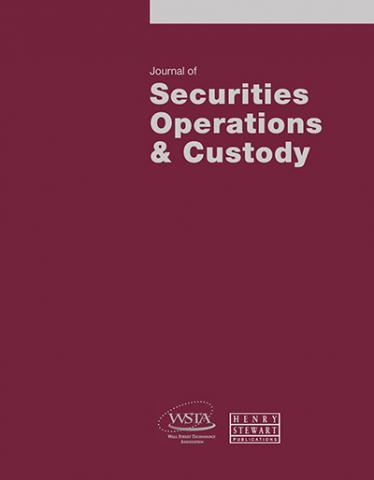"Journal of Payments Strategy & Systems goes beyond traditional periodicals and offers a strategic perspective on the payments landscape from all views. This is a focused, straightforward journal written by industry experts who live and breathe this business every day. This should be a key resource for anyone involved in this sector.”
AI in capital markets: Navigating legal and regulatory considerations
Click the button below to access the full article.
Abstract: In capital markets, digitisation and cloud technology have catalysed opportunities for AI by enabling firms to collect, store and analyse larger datasets from a variety of internal sources than ever before. The past year brought greater regulatory activity around AI in the UK, EU and US than in any prior year, although regulatory regimes remain disparate. When considering legal issues that arise from use of AI, facets of multiple legal fields are relevant, albeit differing between jurisdictions, such as intellectual property rights frameworks and contractual areas such as data ownership, data rights, risk and liability allocation and compliance responsibilities. In this paper, the key legal considerations and recent regulatory developments are categorised into four actionable, international themes: (i) due diligence of data as an asset; (ii) effective organisational ongoing controls; (iii) intellectual property management; and (iv) third party contract and risk management. With so much in flux, we find that the best approach for now is to consider such themes and ensure robust governance, transparency and explainability of each of the AI systems, human oversight of the AI and contractual arrangements with third party providers. Perhaps ironically, ‘getting AI right’ is currently, to a large extent, more an art of human judgement than any formulaic compliance with rules.
Keywords: artificial intelligence; machine learning; digitisation; financial regulation; legislation; intellectual property
Mike Pierides leads Morgan Lewis's Technology, Outsourcing and Commercial practice outside the US. His practice encompasses a wide breadth of commercial and technology transactions. Mike advises on major outsourcings, strategic restructurings following divestments or acquisitions and technology-specific transactions such as licensing and ‘as a service’ arrangements. He is also active advising on new technologies such as blockchain and artificial intelligence.
James Mulligan is an associate in Morgan Lewis's Technology, Outsourcing and Commercial practice. He advises clients on technology, cloud outsourcing and commercial transactions, including drafting and negotiating software licensing and resale, data processing, joint development and master services agreements. James regularly advises clients in highly regulated industries and has completed a secondment to a leading technology and financial services business, where he negotiated high-value outsourcing arrangements as part of corporate actions. James has a particular interest in advising on the use of new technologies, such as artificial intelligence, within financial services.
Christopher Archer is a senior associate in Morgan Lewis's Technology, Outsourcing and Commercial practice. Chris focuses his practice on outsourcing, major technology and digital transformation initiatives, complex strategic commercial transactions, cloud services agreements, system implementation deals and other significant licensing agreements. As part of his role on these transactions, Chris manages complex deal structures, coordinates and leads diverse groups of stakeholders and manages various legal specialists. Chris works with clients on global outsourcing deals that span a wide range of business processes, including information technology, finance and accounting, procurement and other core and non-core functions. As a leader of deal teams, Chris oversees all aspects of transactions, which often require significant deal management and advice regarding scope of services, performance criteria, transition planning and implementation, security, privacy, intellectual property, liability, termination and wind down issues.



